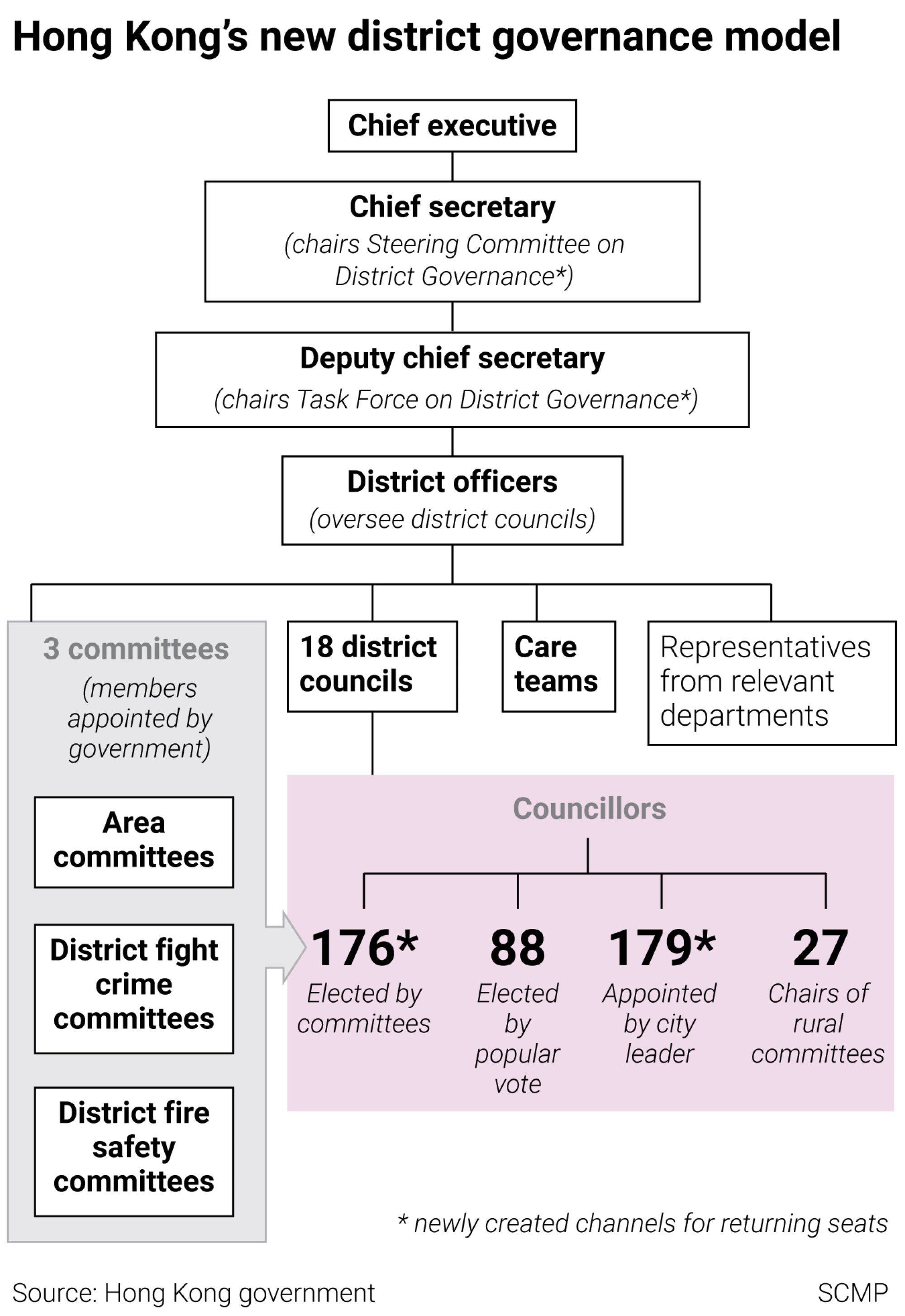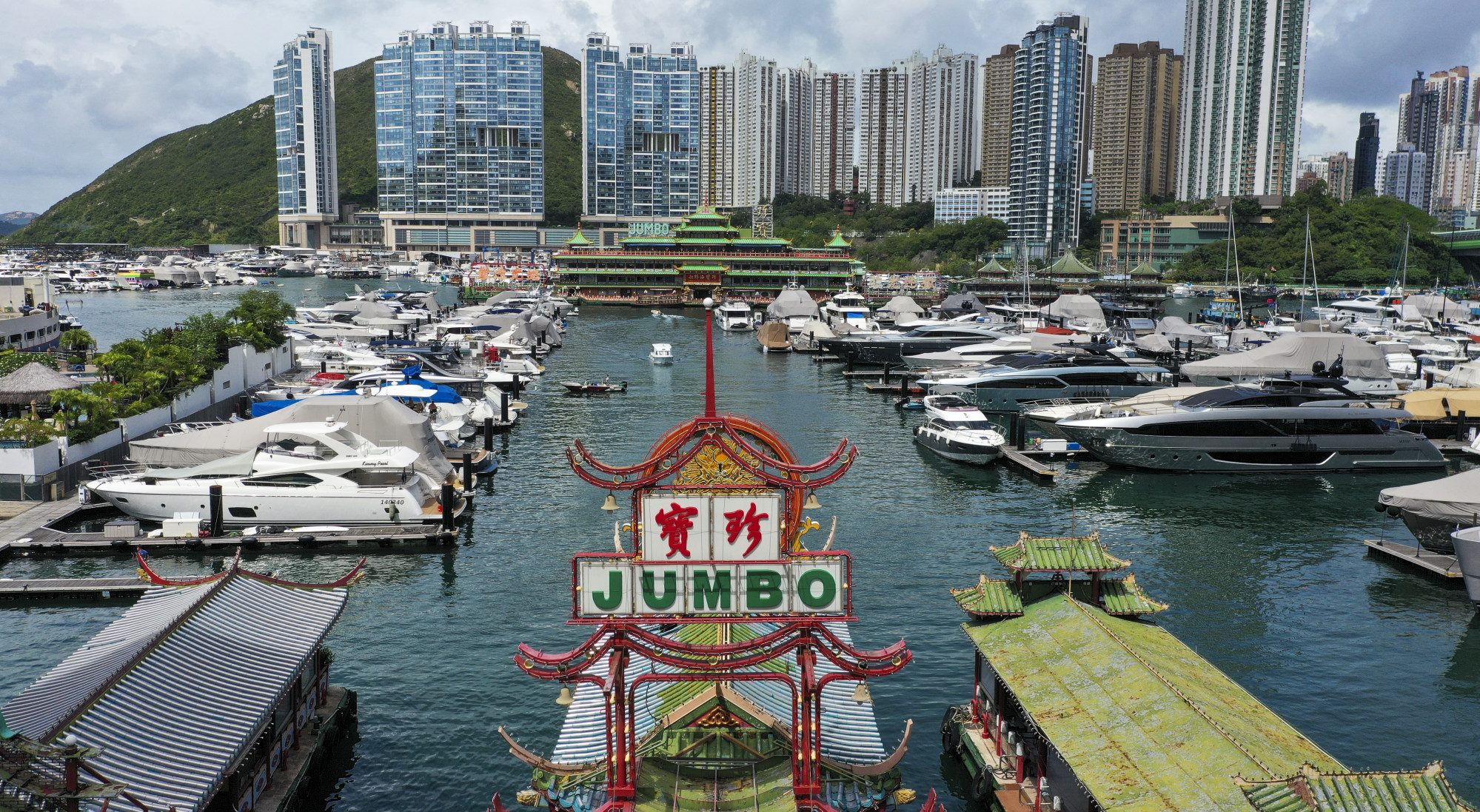
How to run Hong Kong districts and local economies better
- Under the proposed reforms, should appointed councillors be unpaid, like most government advisers? What will their duties be, and how will they be held accountable?
- Stepping back from such questions, practical measures can be introduced to improve governance at the district level, to build better communities
The reforms will prove inefficient and constrain the feedback channels from community to government. They are also superfluous as the risk of abuse of the councils has been addressed with the implementation of national security legislation, and changes in the code of practices set out in a government circular on district administration in 2020.
The current district councils are the only government advisory bodies formed primarily by people directly nominated and elected by electors from constituencies of around 16,000 people each. Why change most of the district councillors into appointed members? The government already has around 520 advisory and statutory bodies, with some 4,600 members of the public appointed to serve in some 7,100 posts (some serve on more than one body).
Generally, membership of these advisory bodies is unpaid. Some remuneration is available for participation in meetings for a quarter of the bodies, primarily appeal boards. Elected district councillors receive a salary and are provided with an expense account to look after their constituency. What will be the duties of appointed councillors? Who or what will they look after? Should they be unpaid, like most government advisers?
Stepping back from the questions of how councillors obtain seats and how to measure their performance without a ballot box, let’s focus on improving district administration and building better communities. Over the years, I have made various proposals to achieve this, and they remain relevant today.

The first three are administrative measures that can be introduced without any legislative change. District officers can implement these with policy support from the Home Affairs Bureau, technical support from relevant departments, a small increase in staff numbers, and some funding for community involvement.
An annual district report and a district plan would clearly present information about the district and improve efficiency and consistency in addressing local issues. They would give residents – and other government departments – a clear overview of the major issues and developments in each district.
The annual report would cover existing and planned projects and services, including those related to development, infrastructure, transport, open space and education. Such reports would, over time, show the progress, or lack thereof, and empower the district council to push departments for timely follow-ups.
How will Hong Kong’s district council overhaul change neighbourhood political life?
The district plan would visualise information from different departments, including existing and planned infrastructure, facilities, traffic aids, land status, zoning, outdoor seating and shop extensions. Most importantly, the plans would show the boundaries of management responsibility of different departments for government land. With this, district councils would no longer have to raise time-wasting inquiries with the Lands Department to identify who is responsible.
A district urban enhancement plan would build on the successful schemes led by the Development Bureau. In Kowloon City, this process generated community proposals for redevelopment and revitalisation, as well as interventions to shape the district character, revitalise heritage, develop walking trails, enhance waterfront areas and improve district connectivity.
Similarly, district councils can work with their respective communities, assisted by professionals and government departments, on master plans for their district. These would be a tremendous resource for improving the administration and governance of each district.
These multidisciplinary offices, established by the Development Bureau, help expedite opportunities identified in a district. Located in the districts they serve, they are well funded and have policy support from the bureau.

In October 2017, district councillors from different political backgrounds gathered at the Hang Seng Management College to further develop and agree on strategies to strengthen district administration. We submitted our recommendations to the chief executive in council.
These included: improved reporting in the districts; availability of district plans and data; clarity on budgets and plans from every government department for their work in each district; improving the living environment and economy of each district; pilot schemes, social labs and participatory design reviews aimed at district services and facilities; and, an annual district summit to improve best practices.
I am adding to the above list the need for district economic plans which consolidate data on jobs and employment: where do constituents work, where are the jobs, and how can improvements be made? To demonstrate this, Designing Hong Kong published reports showing the number of jobs by district, the share of jobs taken up by local residents, and the proportion of people who live and work in the same district.
The above enhancements proposed for the operation of district councils may not compensate for the inefficiencies of an appointment system, but they will go a long way towards building better communities.
Paul Zimmerman is vice-chairman of Southern District Council and a district councillor in Pok Fu Lam

